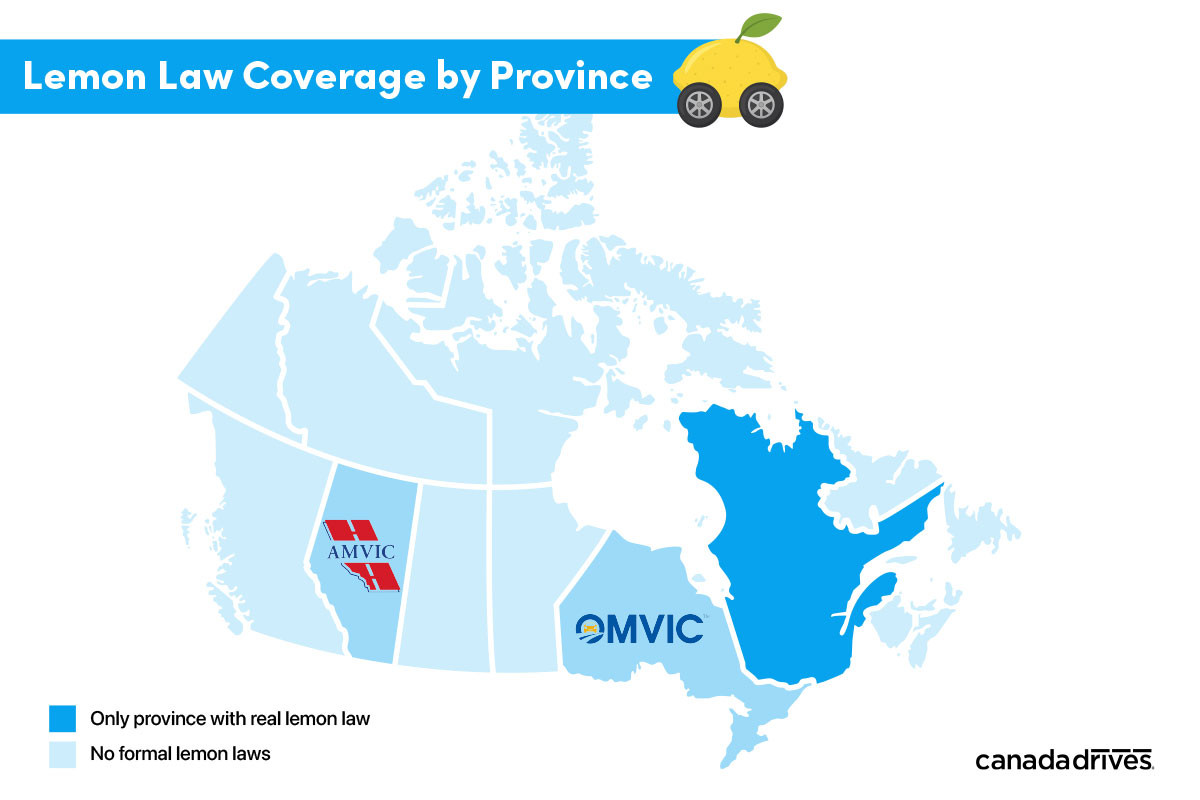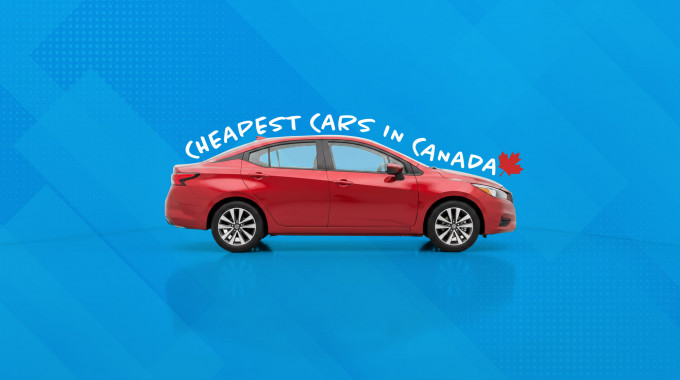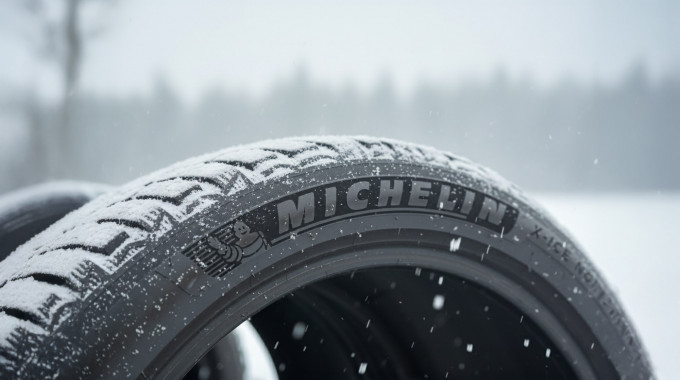
What Lemon Laws Protect Canadian Car Buyers?
When you’re buying a car—either used or brand new—you do your best to ensure it’ll be trouble-free. Unfortunately, in rare cases, some car buyers end up with a “lemon”—a vehicle with persistent manufacturer defects that can’t be fixed, even after several repair attempts.
The good news? Seriously defective vehicles are uncommon. Only about 1% of cars produced each year turn out to have ongoing issues. But that still means 1 in every 100 cars can become a major headache.
How do you avoid this scenario? The best place to start is by understanding the laws in place to protect car buyers in Canada.
If you're shopping for a new or used car and want peace of mind, here’s what you need to know about lemon laws (and other protections) for Canadian car buyers.
What is a Lemon Law?
South of the border, all 50 U.S. states have a lemon law in place for new vehicles, and a handful states have a lemon law in place for used vehicles.
The specifics vary slightly from state to state but in broad terms, a car can be classified as a lemon when it has “a substantial defect covered by warranty that occurred within a certain time or number of miles after you bought the car,” and can’t be fixed after a “reasonable number of repair attempts.”
In Canada, there are no formal lemon laws in place—either federally or provincially. However, there are standards that Canadian dealers and manufacturers must adhere to. These standards include disclosures and arbitration processes that are in place to protect car buyers.
What do Car Dealers Have to Disclose?
If there are any mechanical problems with or damage to a vehicle, it’s incumbent on Canadian car dealerships to let potential buyers know. While the criteria differs from province to province, each regulator mandates certain disclosures.
For example, Ontario’s Vehicle Sales Regulator (OMVIC) describes mandatory disclosures under the Motor Vehicle Dealers Act (MVDA) that dealers must make the buyer aware of.
Such disclosures include if the vehicle has:
- required any repair services or modifications due to structural damage
- required any significant repairs exceeding $3000 due to collision or incident damage
- sustained water or fire damage
- major systems that are not operational (engine, transmission, power train, A/C, computer, electrical, fuel, subframe or suspension)
- had multiple body panels replaced
- been classified with an irreparable, salvage, or rebuilt status
- had its warranty voided
- been stolen and recovered
- been registered in another province or territory
- been used as a taxi, emergency vehicle, lease, or rental
- ABS brakes or airbags that aren’t working
- had its odometer rolled back or replaced
- any other issue that could influence the buyer’s decision
Take comfort knowing that when you buy a car from a dealership or online retailer, you must be told about any pre-existing conditions that a vehicle has had. Not only can that help you make an informed decision, but it gives you some recourse in the event of a problem.
What do Private Car Sellers Have to Disclose?
Buying a used car from a private seller is riskier. Unlike car dealerships, private sellers are not required to disclose the same information.
In certain situations, you might have legal options if the seller has misrepresented the health of the car you bought, but it will likely require a fight in small claims court.
This is why it’s so important to do your homework when you’re buying a used car from a private seller. Go the extra mile to get a vehicle history report, take it for an extensive test drive, and take it to a licensed mechanic for a pre-purchase inspection.
What to Do if You Bought a Lemon Car
If you’ve found yourself the proud owner of a lemon car, don’t despair. You do have options, though the number of options at your disposal differ greatly depending on whether you purchased the car from a dealer or private seller.
What to do if you purchased a car from a dealership
Your first course of action should be pursuing the issue with the dealership (or online retailer) that sold you the vehicle. For starters, the nagging issue with your car may still be under warranty and can be fixed at the manufacturer’s expense, through the dealership.
However, if the issue persists after several attempts at repair, the manufacturer refuses to cover repair costs, or you’re not satisfied with the repairs, you can seek arbitration through the Canadian Motor Vehicle Arbitration Plan (CAMVAP).
CAMVAP exists to help settle disputes from consumers who believe their car is unduly problematic or unsafe. Most carmakers are involved in CAMVAP, covering 94% of new car sales in Canada.
To be eligible, the car’s model must be less than four years old, with fewer than 160,000km. CAMVAP can help you negotiate with your car’s manufacturer for a range of possible outcomes, such as covering the cost of ongoing repairs or even buying back the defective vehicle.
What to do if you purchased a used car from a private seller
Unfortunately, buying a car from a private seller doesn’t leave you with many great options if that car turns out to be a lemon. Importantly, cars purchased from a private seller are not eligible for CAMVAP.
Likewise, you're only protected by consumer protection laws when you buy a vehicle from a dealership that is registered with a regulatory body such as OMVIC, AMVIC, or VSABC.
You may have some legal recourse available to you through arbitration or small claims court, but you’ll likely need to provide some proof that the seller knew about the car’s defect or damage and didn’t inform you. This can be tough to prove and usually open to interpretation.
Typically, the cost of pursuing recourse on a private car sale gone bad through arbitration or the courts is not worth it.
Lemon Laws by Province
While Canada doesn’t have a federal lemon law, some provinces offer stronger consumer protections than others. Here’s how lemon law coverage compares across Canada:

Quebec stands out as the only province with a formal lemon law. Ontario and Alberta offer strong protections through their regulatory authorities (OMVIC and AMVIC).
Quebec stands out as the only province with a formal lemon law. Ontario and Alberta offer strong protections through their regulatory authorities (OMVIC and AMVIC).
Lemon car law in Ontario
There’s no specific "lemon law" in Ontario, but Ontario consumers benefit from strong protections through OMVIC (Ontario Motor Vehicle Industry Council). OMVIC enforces the Motor Vehicle Dealers Act (MVDA), requiring auto dealers to disclose:
- Structural damage or major repairs over $3,000
- Non-functioning systems like the engine or transmission
- Vehicles that were used as rentals, taxis, or emergency vehicles
- Vehicles with rolled-back odometers or voided warranties
- Prior classifications such as salvage, irreparable, or rebuilt
If a consumer believes they were misled, they can contact OMVIC or pursue arbitration through CAMVAP (if eligible). If the car was sold by a non-registered dealership, legal recourse may be limited.
Lemon law in Alberta
Alberta also doesn’t have a formal lemon law. However, the Alberta Motor Vehicle Industry Council (AMVIC) helps protect consumers by enforcing disclosure requirements and addressing complaints. AMVIC also supports arbitration between consumers and licensed dealers.
Quebec: the only Canadian province with a real lemon law?
Quebec is often cited as the only Canadian province with a law that closely resembles a lemon law. In 2021, the Quebec National Assembly passed a law focused on planned obsolescence and anti-lemon provisions.
Notably, under Quebec’s Consumer Protection Act, the province requires that a vehicle sold must be usable for a reasonable amount of time. If it turns out to be defective—i.e., it’s “always a lemon”—the consumer may be entitled to:
- Have the price reduced
- Receive a replacement
- Have the sale cancelled
These rights apply to both new and used vehicles and give Quebec residents some of the best protected consumer status in the country.
Is there a 30-day warranty on used cars in Quebec?
While there’s no standardized “30-day warranty” across Canada, Quebec’s Consumer Protection Act does include legal warranty provisions. This essentially acts as a default warranty, ensuring that the vehicle must be fit for purpose—even if no express warranty was offered. If a problem occurs shortly after purchase, the buyer may have legal recourse to claim repair costs or cancel the sale.

Can You Return a Used Car If It Has Problems?
The ability to return a used car depends on how and where it was purchased:
- From a dealership: You’re protected by consumer laws, especially if the dealership is registered with a regulatory body like OMVIC, AMVIC, or VSABC. If a vehicle has recurring issues, you may seek repairs, reimbursement, or arbitration through CAMVAP.
- From a private seller: These transactions carry more risk. There's no automatic return window, and you're not covered by the same protections. The burden is on the buyer to inspect the vehicle, obtain a vehicle history report, and have it checked by an independent mechanic before buying.
What Role Does the Automobile Protection Association Play?
The Automobile Protection Association (APA) is a non-profit consumer advocacy organization that helps Canadian consumers avoid lemon vehicles by offering vehicle reviews, dealer ratings, and assistance with complaint resolution.
They can be a valuable resource for consumers struggling to resolve vehicle problems or considering pursuing recourse outside of CAMVAP.
Tips to Avoid Buying a Lemon
- Buy from a reputable source: Stick with registered dealerships or certified online retailers.
- Request full disclosure: Ask for all known defects and service history.
- Get a pre-purchase inspection: Have an independent mechanic review the vehicle.
- Check the VIN: Run a vehicle history report to look for red flags.
- Understand your province’s laws: Some regions offer better protection than others.
Once a Lemon, Always a Lemon?
Not necessarily. Some vehicles struggling with recurring issues can be successfully repaired using OEM replacement parts or upgrades. However, if the same problem persists through multiple unsuccessful repair attempts, your best route may be arbitration or consumer protection programs to ensure the issue is resolved—or the vehicle repurchased.
Shop Confidently With Canada Drives
Canada Drives has built a nationwide network of reputable partner dealerships that carry a wide range of quality new and used vehicles.
Available in every province and territory, you can get pre-approved for your car loan online and shop with confidence knowing that you are buying a car from a certified Canada Drives partner dealership.







